Moral understanding Reading Fiction Worksheets for Ages 4-9
5 filtered results
-
From - To
Explore our "Moral Understanding Reading Fiction Worksheets" designed for children ages 4-9! These engaging worksheets help young readers grasp essential life lessons through compelling fictional stories. Each activity challenges students to identify moral themes, encourage critical thinking, and foster empathy by relating to the characters and their choices. Perfect for enhancing reading comprehension, these worksheets support educators and parents in cultivating a strong moral foundation in early learners. Interactive and age-appropriate, our materials make learning fun while teaching valuable lessons about honesty, kindness, and responsibility. Enhance your child's reading journey today with our thoughtfully designed moral understanding resources!
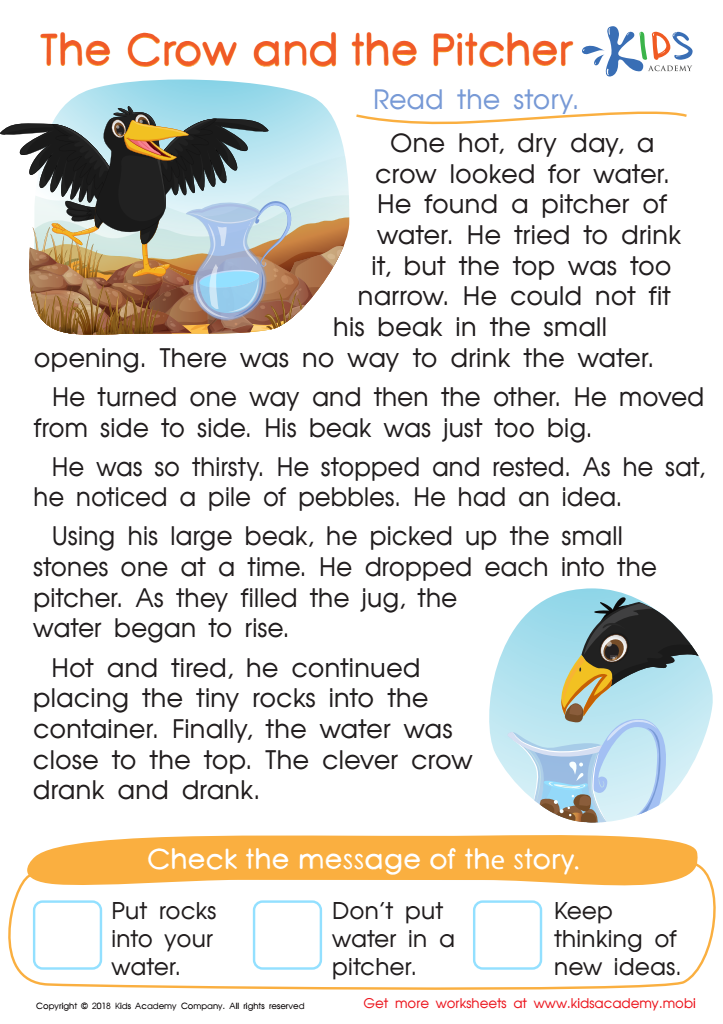

The Crow and the Pitcher Worksheet
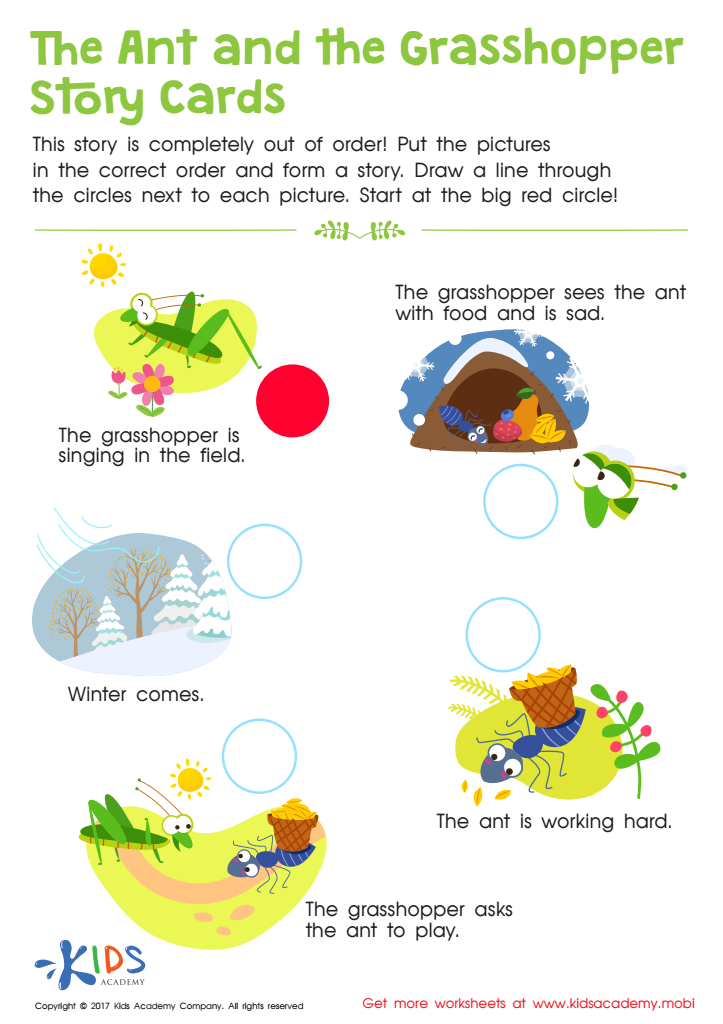

The Ant and The Grasshopper Worksheet
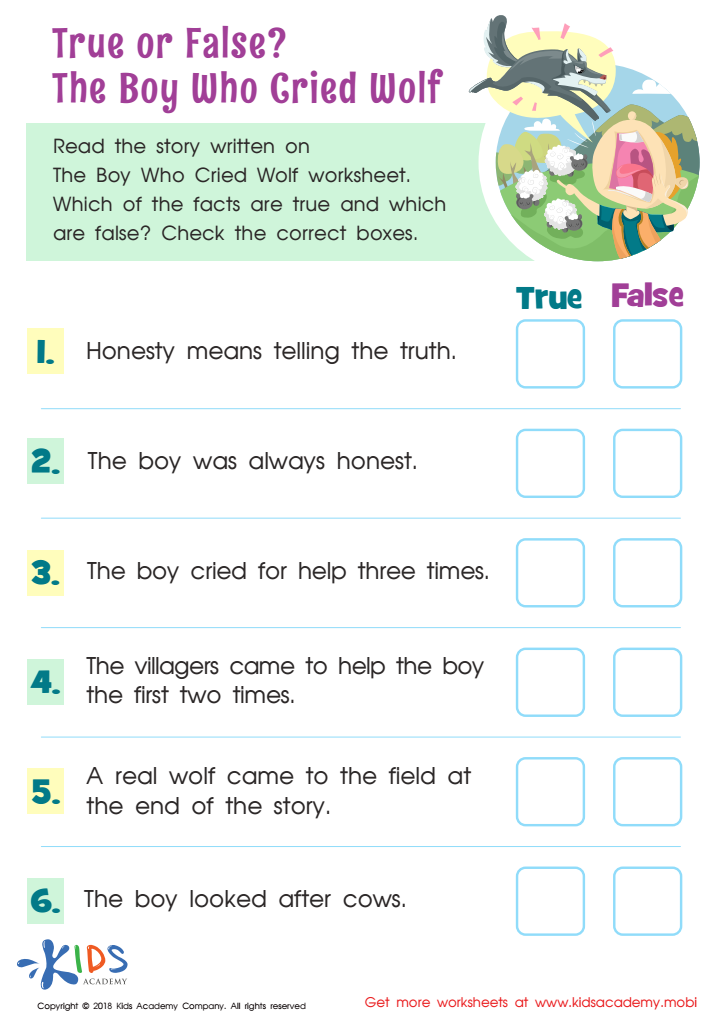

True or False? The Boy Who Cried Wolf Worksheet
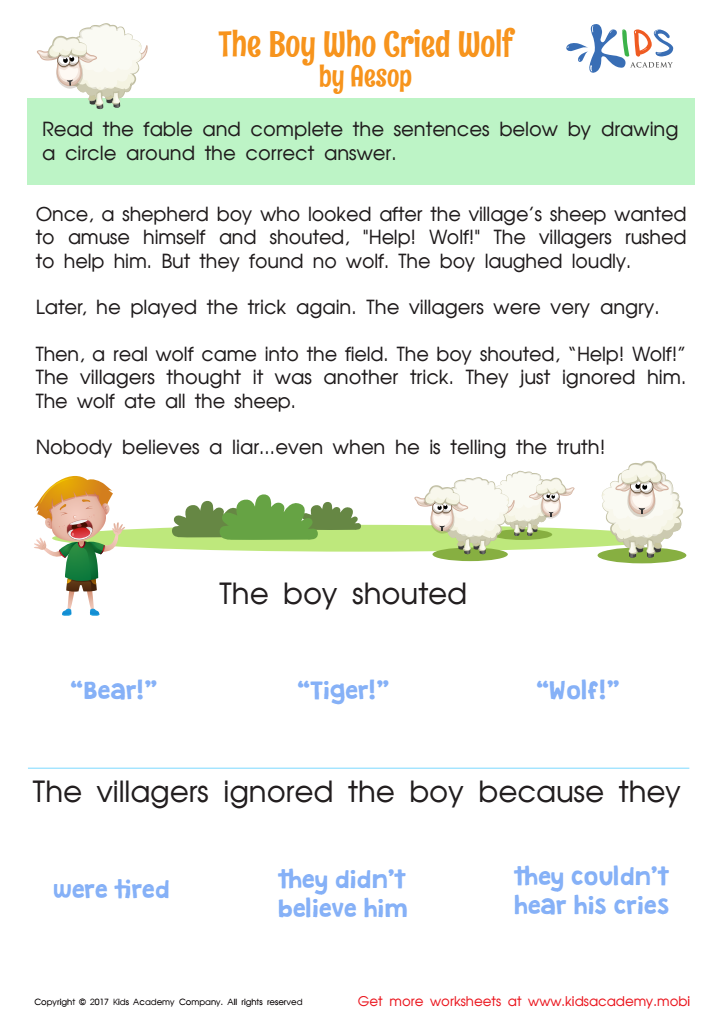

The Boy Who Cried Wolf Worksheet
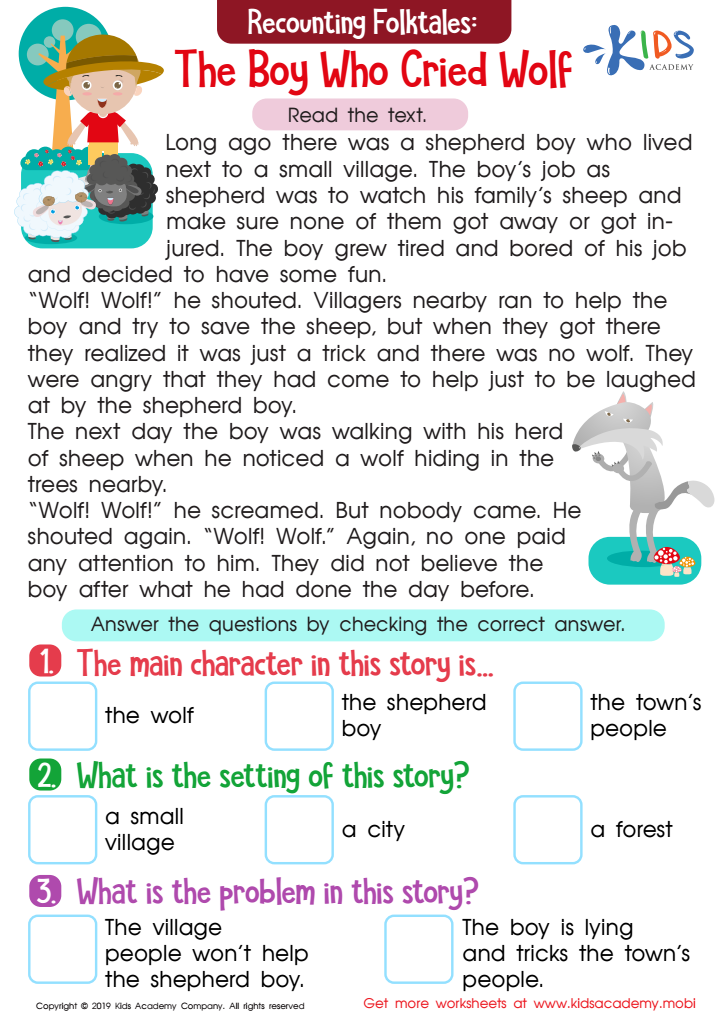

The Boy Who Cried Wolf Part 1 Worksheet
Parents and teachers should prioritize moral understanding through reading fiction for children aged 4-9 because stories are powerful tools for developing empathy, critical thinking, and ethical reasoning. At this formative stage, children are naturally drawn to narratives that engage their imaginations and allow them to explore complex social situations in a safe environment. Fiction introduces characters facing moral dilemmas, enabling young readers to think about right and wrong, and to consider multiple perspectives.
Reading these stories cultivates empathy, as children are prompted to feel for the characters and appreciate the consequences of their actions. This emotional engagement is crucial in helping them develop a moral compass that guides their behavior in real-life situations. It also encourages discussions about values, responsibility, and integrity, allowing parents and teachers to reinforce the lessons learned through the text.
Moreover, early exposure to these themes transforms children into thoughtful, compassionate individuals, enhancing their social interactions and community contributions as they grow. By integrating moral understanding into reading experiences, adults foster critical life skills that support both personal and societal harmony. In summary, nurturing moral development through fiction is essential for raising caring, conscientious learners.
 Assign to My Students
Assign to My Students



.jpg)












